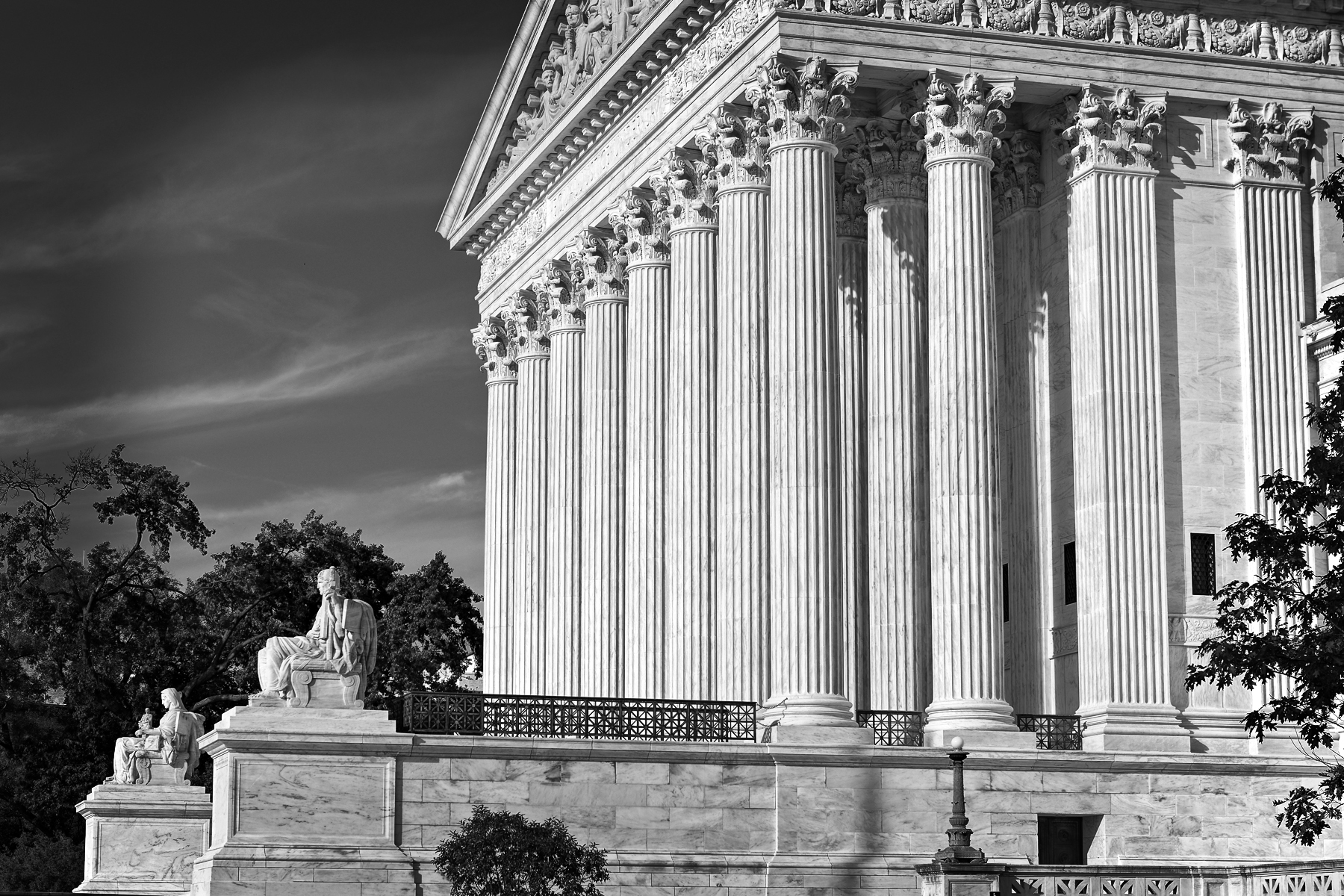SCOTUS Wrap Ups November with Three Oral Arguments

After taking a break for the Thanksgiving holiday, the U.S. Supreme Court heard oral arguments in three cases last week. The issues before the justices included the detention of illegal aliens, the death penalty, and sentencing guidelines.
Below is a brief summary of the issues before the Court:
Moore v. Texas: The justices delved back into the death penalty in the Texas capital punishment case. The case centers on how to determine if a defendant is so intellectually disabled that it would be unconstitutional to sentence him to death. The specific question before the Court is: “Whether it violates the Eighth Amendment and this Court’s decisions in Hall v. Florida, 134 S. Ct. 1986 (2014) and Atkins v. Virginia, 536 U.S. 304 (2002) to prohibit the use of current medical standards on intellectual disability, and require the use of outdated medical standards, in determining whether an individual may be executed.”
Jennings v. Rodriguez: The case involves the prolonged detention of noncitizens who are subject to removal proceedings. The justices have specifically agreed to decide the following questions: (1) Whether aliens seeking admission to the United States who are subject to mandatory detention under 8 U.S.C. § 1225(b) must be afforded bond hearings, with the possibility of release into the United States, if detention lasts six months; (2) whether criminal or terrorist aliens who are subject to mandatory detention under Section 1226(c) must be afforded bond hearings, with the possibility of release, if detention lasts six months; and (3) whether, in bond hearings for aliens detained for six months under Sections 1225(b), 1226(c), or 1226(a), the alien is entitled to release unless the government demonstrates by clear and convincing evidence that the alien is a flight risk or a danger to the community, whether the length of the alien’s detention must be weighed in favor of release, and whether new bond hearings must be afforded automatically every six months.
Beckles v. United States: In this case, the Supreme Court wrestled with the constitutionality of residual clauses in sentencing guidelines and how to apply with precedent established by Johnson v. United States. In the 2015 decision, the Court held that the “residual clause” of the Armed Career Criminals Act (ACCA) was unconstitutionally vague. In Beckles, the justices agreed to decide three questions: (1) Whether Johnson applies retroactively to collateral cases challenging federal sentences enhanced under the residual clause in United States Sentencing Guidelines (U.S.S.G.) § 4B1.2(a)(2) (defining “crime of violence”); (2) whether Johnson‘s constitutional holding applies to the residual clause in U.S.S.G. § 4B1.2(a)(2), thereby rendering challenges to sentences enhanced under it cognizable on collateral review; and (3) whether mere possession of a sawed-off shotgun, an offense listed as a “crime of violence” only in commentary to U.S.S.G. § 4B1.2, remains a “crime of violence” after Johnson.
Previous Articles
Supreme Court Rejects Mexico’s Suit Against U.S. Gun Manufacturers
by DONALD SCARINCI on July 8, 2025
In Smith & Wesson Brands v. Estados Unidos Mexicanos, 605 U.S. ____ (2025), the U.S. Supreme Co...
SCOTUS Sides With Employee in Reverse Discrimination Case
by DONALD SCARINCI on July 2, 2025
In Ames v. Ohio Department of Youth Services, 605 U.S. ____ (2025), the U.S. Supreme Court held tha...
Supreme Court Rejects Moment of Threat Doctrine in Deadly Force Case
by DONALD SCARINCI on June 30, 2025
In Barnes v. Felix, 605 U.S. ____ (2025), the U.S. Supreme Court rejected the Fifth Circuit Court o...
The Amendments
-
Amendment1
- Establishment ClauseFree Exercise Clause
- Freedom of Speech
- Freedoms of Press
- Freedom of Assembly, and Petitition
-
Amendment2
- The Right to Bear Arms
-
Amendment4
- Unreasonable Searches and Seizures
-
Amendment5
- Due Process
- Eminent Domain
- Rights of Criminal Defendants
Preamble to the Bill of Rights
Congress of the United States begun and held at the City of New-York, on Wednesday the fourth of March, one thousand seven hundred and eighty nine.
THE Conventions of a number of the States, having at the time of their adopting the Constitution, expressed a desire, in order to prevent misconstruction or abuse of its powers, that further declaratory and restrictive clauses should be added: And as extending the ground of public confidence in the Government, will best ensure the beneficent ends of its institution.





